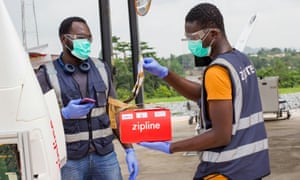World leaders will come together virtually on Monday to mark the 75th anniversary of the United Nations, as the deadly coronavirus pandemic challenges the effectiveness and solidarity of the 193-member world body, Reuters reports.
As Covid-19, which emerged in China late last year, began to spread around the world, forcing millions of people to shelter at home and dealing a devastating economic blow, countries turned inward and diplomats say the United Nations struggled to assert itself.
UN Secretary-General Antonio Guterres told Reuters that the pandemic has exposed the world’s fragilities. He plans to tell world leaders on Monday that they need to work together at a time when there is a surplus of multilateral challenges and deficit of solutions.
The 15-member Security Council took months to back a call by Guterres for a global ceasefire – to allow countries to focus on fighting Covid-19 – due to bickering between the world’s biggest powers: China and the United States.
The 193-member General Assembly only adopted an omnibus resolution on a “comprehensive and coordinated response” to the pandemic earlier this month and it was not by consensus. The United States and Israel voted no.
A $10.3 billion UN appeal to fund fighting the pandemic in vulnerable and low-income countries is only a quarter funded. Guterres now has taken a lead in pushing to make sure any vaccine for the coronavirus is made available to everyone globally.
A senior European diplomat, speaking on condition of anonymity, said the General Assembly should have acted months ago, but “we were all hampered by, and hit, by the Covid-19.”
It was uncharted waters for the 72nd Emmy awards – the first major acting awards show held since the pandemic began, a strange and subdued ceremony in which stars accepted awards on Zoom. But unwelcome new methods (the telecast required more than 100 live feeds), and the end of former Emmys juggernauts Game of Thrones and Veep, ushered in a celebration of new series and talent: Canadian comedy Schitt’s Creek swept the comedy awards, HBO’s Succession dominated in drama and the evening’s most-nominated show, HBO’s prescient, eerie Watchmen, cleaned up in the limited series category:
The number of confirmed coronavirus cases in Germany increased by 922 to 272,337, data from the Robert Koch Institute for infectious diseases showed on Monday.
The reported death toll remained unchanged at 9,386, the tally showed.
Victoria, Australia sees lowest cases since June
Australia’s coronavirus hotspot of Victoria reported on Monday its lowest daily rise in infections in three months, although state Premier Daniel Andrews said there were no plans yet to ease restrictions sooner than expected, Reuters reports.
Victoria, Australia’s second-most populous state and home to a quarter of its 25 million people, reported 11 new coronavirus cases in the past 24 hours, the smallest one-day jump since 16 June. It also reported two deaths due to the virus.
“This is not just a good day. This is a great day,” Andrews told reporters in the Victorian capital, Melbourne.
But the premier said his government would not accelerate a timetable for easing restrictions, which were imposed after daily case numbers topped 700 in early August.
“The formal position is clear,” Andrews said.
“If circumstances change, if we find ourselves ahead of schedule, not for one day, but in a manifest sense, common sense always guides us,” he added.
Melbourne has been under one of the toughest lockdowns, including nightly curfews, but the state government has said it will let construction sites, manufacturing plants, warehouses and childcare facilities in the capital reopen on 28 September if the average number of cases over two weeks is below 50. The average in Melbourne is now below 35.
Updated
Here’s the full story on New Zealand easing restrictions, with the Guardian’s Charlotte Graham-McLay in Wellington:
Many New Zealanders will on Monday night taste freedom from all Covid-19 restrictions for a second time during the pandemic, after Jacinda Ardernremoved all domestic rules for much of the country.
Some restrictions will remain on the largest city, Auckland, for a further two weeks, although the rules will be eased somewhat as health officials said a cluster of cases in the city did not appear to have generated any fresh instances of the virus in the past week.
“Our actions collectively have managed to get the virus under control,” the prime minister told a news conference on Monday. “We are in a strong position to make our next move down the alert settings.”
Celebrations began on social media as New Zealanders heard the news.
Israelis hold first protests since lockdown
Thousands of Israeli protesters gathered Sunday in Jerusalem to demand the resignation of Prime Minister Benjamin Netanyahu, the first such demonstrations since the start of a new nationwide coronavirus lockdown, AFP reports.
Authorities in Israel, which has seen one of the world’s highest per capita rates of coronavirus infections in the past two weeks, imposed a new nationwide lockdown on Friday.
Coinciding with the first day of the Jewish holiday season, it sparked particular anger among ultra-Orthodox Jews.
While the government was praised for its initial handling of the pandemic, implementing a strict lockdown in March, many Israelis have accused the government of bungling its crisis response since.

Ultra-Orthodox Jews chant slogans during a protest against the restrictions on gatherings for public prayers despite a new nationwide lockdown order aimed at curbing a raging coronavirus outbreak in Bnei Brak, Israel, Sunday, 20 September 2020. Photograph: Ariel Schalit/AP
Protests are still allowed despite the new restrictions, and demonstrators were undeterred in joining the rally outside Netanyahu’s Jerusalem residence, as they have done every week for almost three months.
Many protesters wore masks, but did not distance themselves from each other to prevent transmission of the virus.
Although economic activity usually slows during the Jewish high holidays, many in Israel fear the financial fallout of the second lockdown could be drastic.
Netanyahu’s government had tried various measures in recent months to avoid a full shutdown, such as weekend closures, but has repeatedly backtracked in the face of opposition.
The Jewish state has the world’s second-highest detected virus infection rate after Bahrain, according to an AFP tally over the past fortnight, recording 187,396 cases and 1,236 deaths.

Jess Cartner-Morley
Victoria Beckham cancelled her planned “salon-style” catwalk show just a few days before London fashion week, fearing that although permitted under current guidelines, a show “didn’t feel appropriate”.
Instead, she presented her new collection to small groups of three visitors at a time, in the same Hoxton art gallery where she had planned to hold the show. Monogrammed silk “VB” face masks were presented to each visitor, to ensure chic social distancing was maintained at all times:
Podcast: The growing influence of the QAnon conspiracy theory
The Guardian US tech reporter Julia Carrie Wong discusses the rise of QAnon, a wide-ranging and baseless internet conspiracy theory that has been festering on the fringes of rightwing internet communities for years. In recent months its visibility has exploded amid the social unrest and uncertainty of the coronavirus pandemic:
From an article on what 200,000 US deaths mean, in the New Yorker:
According to one estimate, each person who dies of covid-19 leaves behind an average of nine surviving family members. If this is right, then there are now at least 1.8 million Americans mourning the loss of kin—parents, husbands, wives, children, siblings, grandparents—and millions more who are mourning with them.
And:
In less than a year, covid-19 has killed four times as many Americans as died from the opioid crisis during its deadliest year. It has killed more Americans than those who perished in every armed conflict combined since the Second World War.
The New York Times reported on 12 August 2020 that the US toll had likely already passed 200,000 as excess deaths – or the number of deaths that have happened in a given period compared to the same period a year earlier – showed that 60,000 more people had died than the number officially linked to Covid-19.
On 29 March, Dr Anthony Fauci, the leading US government infectious diseases expert, warned that the toll could get as high as this – at the time, 2,188 Americans had died from the virus:
Updated
The official death toll in the US is likely to pass 200,000 today. It is the highest toll in the world – and more than 60,000 deaths higher than the next worst, which is Brazil’s. According to Johns Hopkins University, the toll currently stands at 199,474.
It took five months for the virus to kill the first 100,000 Americans and just over three months for the next 100,000. Here is our story from May:
Updated
Ghanaian President Nana Akufo-Addo on Sunday announced the return of professional football as part of a loosening of restrictions following a fall in the number of coronavirus cases, AFP reports.
But the West African country’s land and sea borders remain closed, and its beaches, bars, cinemas and night clubs will also stay shut for the time being, he said in a televised address.
“Now more than ever, we must be even more disciplined in our adherence to the personal hygiene, mask wearing and social distancing measures that have become part of our daily routines,” he warned.

Flight operators scan a package in for delivery in Ghana amid the coronavirus outbreak in Accra, Ghana on 16 April 2020. Picture taken April 16, 2020. Photograph: ZIPLINE/Reuters
The loosening of restrictions means training in contact sports can resume, while Premier League and Division One football will resume on October 30, he said. Players and support staff will be regularly tested, he added.
But the wearing of masks will remain mandatory until December 14.
“No spectators will be allowed at the training centres, and, when actual competition resumes, seating at all stadia will be limited to twenty-five percent capacity to ensure social distancing,” the president said.
The resumption of other sports would be discussed on a case-by-case basis between the sports ministries and the federations concerned, he added.
Ghana has recorded around 46,000 cases of coronavirus and 297 deaths.
New Zealand eases restrictions in Auckland
Charlotte Graham-McLay reports for the Guardian:
Jacinda Ardern, New Zealand’s prime minister, further eased restrictions on the country’s largest city, Auckland, and completely removed domestic restrictions on the rest of the nation, after Covid-19 case numbers continued to fall.
A community outbreak in Auckland – after New Zealand earlier eliminated the virus in June – had prompted a second lockdown in August, which has now been eased further. From 11:59p.m. on Wednesday, social gatherings in Auckland are now limited to 100 people, rather than the current limit of 10.
Face coverings are mandatory on public transport and on any planes going to or from Auckland.
Ardern said that from 11:59p.m. on Monday, the rest of the country would fall to so-called level 1 restrictions – meaning there are no rules in place except for strict border restrictions.
There has been no community transmission of the virus outside of Auckland.
“Our actions collectively have managed to get the virus under control,” Ardern said.
Updated








